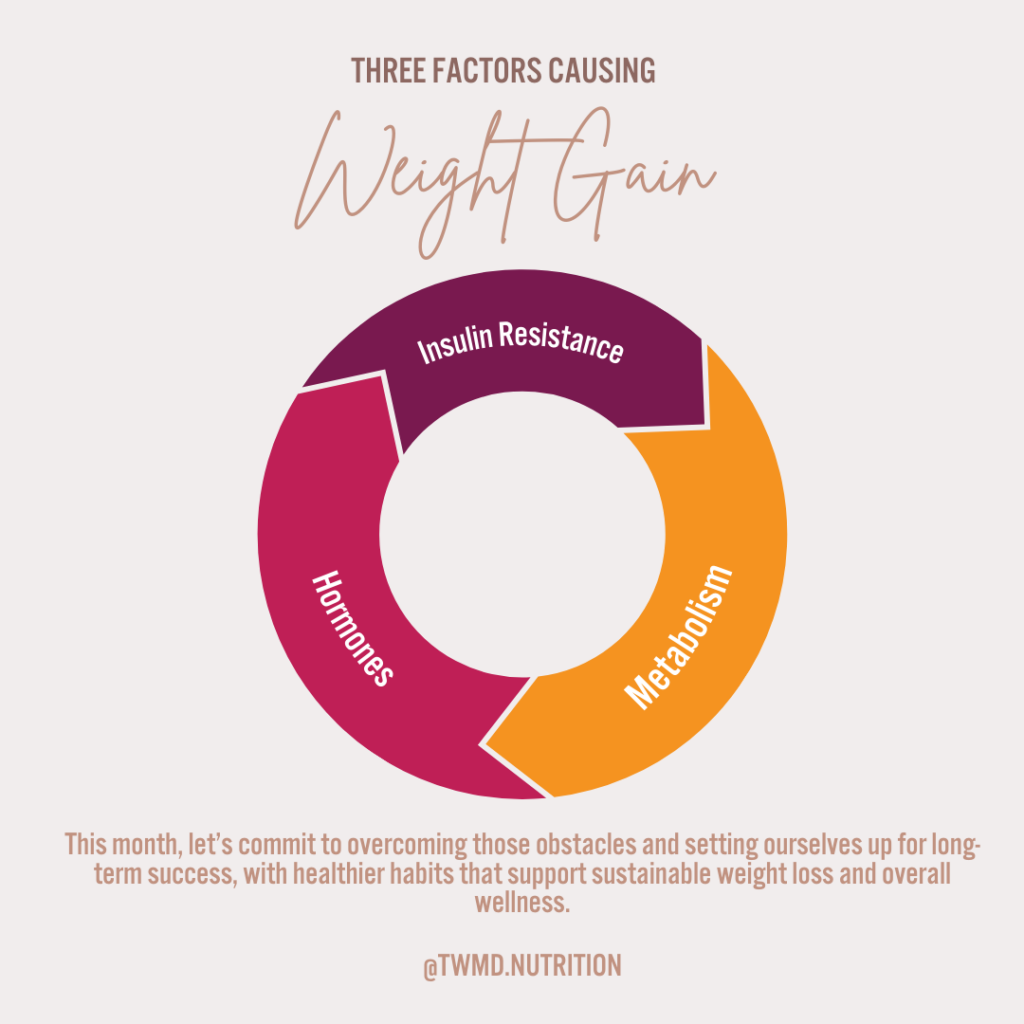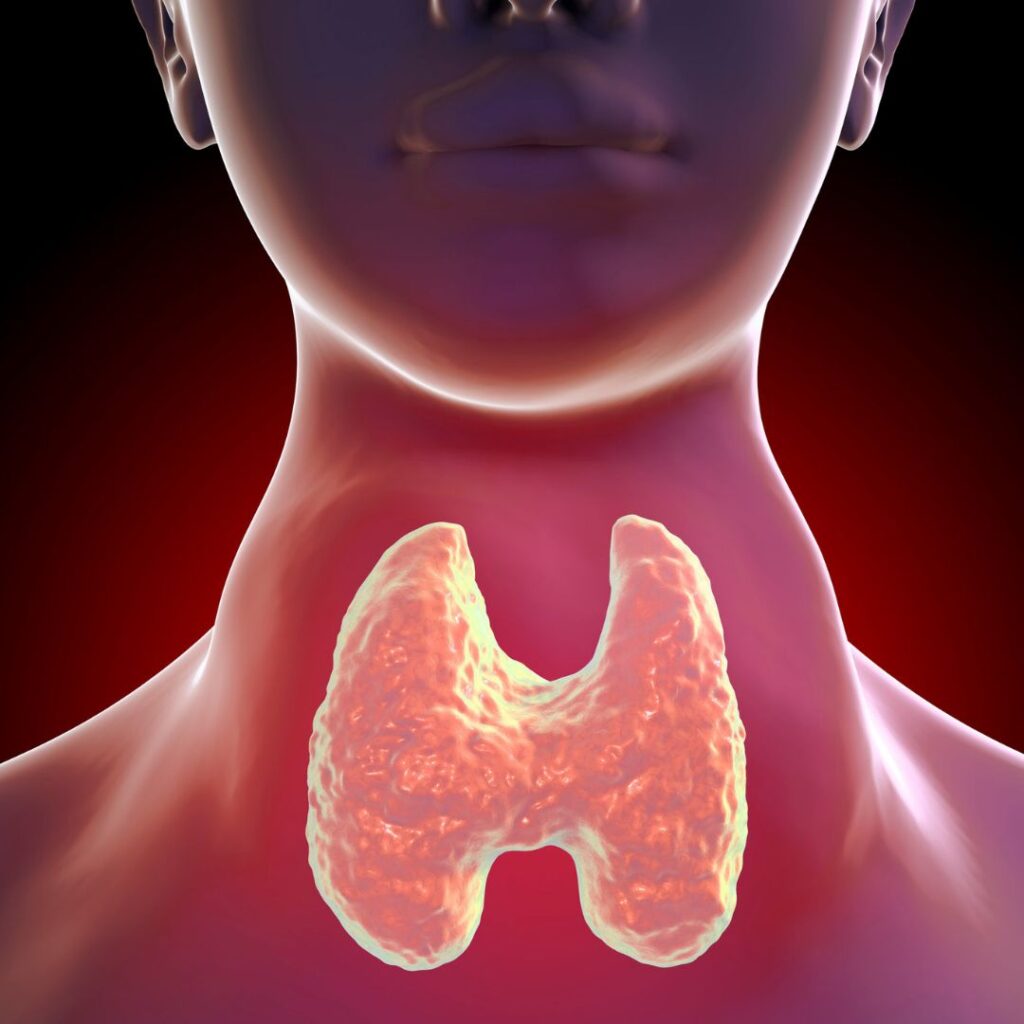Struggling with Weight: 3 Key Factors at Play
As we start a new month, it’s the perfect time to break free from the cycle of weight gain that can feel overwhelming and discouraging, especially if you want to avoid falling into the typical “New Year” pattern. Weight gain, insulin resistance, and hormonal imbalances often go hand-in-hand, creating a loop that slows metabolism and makes losing weight more difficult. But with the right approach, focusing on balanced nutrition, regular exercise, and targeted support such as hormone therapy, you can reset your body and start seeing real progress. This month, let’s commit to overcoming those obstacles and setting ourselves up for long-term success, with healthier habits that support sustainable weight loss and overall wellness.
Understanding the Role of Insulin Sensitivity

Insulin is a hormone made by the pancreas that helps manage your blood sugar levels. After you eat, insulin allows your cells to take in glucose (sugar) from your blood, giving your body energy. It also helps store any extra glucose in the liver and muscles as glycogen, or converts it into fat for later use. In short, insulin helps keep your blood sugar stable by promoting a sense of “satiety” and ensures your body has the energy it needs to function.
However, when your body becomes less responsive to insulin, often due to factors like poor diet, lack of exercise, or stress, blood sugar levels rise. To compensate, the pancreas produces more insulin. This can lead to hyperinsulinemia, or excess insulin in the bloodstream, which can eventually result in insulin resistance or even type 2 diabetes. When there’s too much insulin in the body, it encourages the storage of glucose as fat, especially around the belly. And because insulin also plays a role in regulating hunger, high insulin levels can make you feel hungrier, leading to overeating, weight gain, and even more insulin resistance. It’s a tough cycle, but understanding how insulin works is the first step toward breaking it.
The Impact on Metabolism
Metabolism is the process by which your body converts food into energy to perform essential functions like breathing, thinking, and moving. It involves two key parts: catabolism, which breaks down food into smaller molecules (like glucose or fatty acids) to release energy, and anabolism, which uses that energy to build and repair cells, tissues, and muscles, as well as store energy for later use. Insulin is considered an anabolic hormone due to its role in promoting the uptake of glucose from the bloodstream into cells, particularly muscle and fat cells, thereby lowering blood sugar levels; it also stimulates the storage of glucose as glycogen in the liver, and influences protein and fat synthesis by promoting their uptake and production within cells.
When metabolism changes, it can either speed up or slow down. A slower metabolism means your body burns calories less efficiently, both at rest and during activity, leading to increased fat storage. Insulin resistance often accompanies these metabolic changes, making weight management more challenging by reducing your body’s ability to burn fat for energy and resulting in greater fat accumulation.

The Role of Other Hormones in it All
Hormones are like chemical messengers that control many important processes in your body, including metabolism. While we’re familiar with how insulin impacts metabolism, there are other hormones that play a key role as well, including:
- Thyroid hormones
- Ghrelin & Leptin
- Sex hormones

Thyroid hormones play a key role in how your body uses energy, stays warm, and keeps your brain, heart, muscles, and other organs functioning, this is your basal metabolic rate (BMR). They also help regulate metabolism: too much thyroid hormone (hyperthyroidism) can make your metabolism “run fast,” while too little (hypothyroidism) can slow it down.
Ghrelin, the “hunger hormone,” is produced in your stomach and tells your brain when it’s time to eat, making you feel hungry. Its levels rise before meals and drop afterward to control short-term appetite. Ghrelin also impacts digestion speed and can influence fat storage. Fun fact: cortisol, the stress hormone, can boost ghrelin levels, leading to a bigger appetite.
Leptin, the “fullness hormone,” is made by fat cells and tells your brain when you’re full and have enough energy. It plays a key role in long-term weight management by reducing hunger and increasing energy expenditure. However, in cases like obesity, the body can become resistant to leptin, leading to ongoing hunger and impaired metabolism, even with high leptin levels.Together, these hormones regulate appetite, digestion, and metabolism, all of which are crucial for managing weight.
Hormonal imbalances can make weight management more challenging by impacting metabolism, appetite, and fat storage. As weight increases, these imbalances often get worse, creating a cycle that’s hard to break. Balancing sex hormones like estrogen in women and testosterone in men is key for fat distribution, muscle growth, and maintaining insulin sensitivity. As women age, estrogen levels naturally decline, especially after menopause, which can increase the risk of insulin resistance. It’s important to monitor your hormone levels because having too much of either estrogen or testosterone can also contribute to insulin resistance.
Remember that weight gain often leads to insulin resistance, which results in excess glucose being stored as fat. With a disrupted metabolism, your body struggles to burn this stored fat for energy, causing it to accumulate. This fat accumulation disrupts hormonal balance, creating a cycle of ongoing metabolic issues and altered hormone levels.

At Tucson Wellness MD, we offer various weight management solutions to help improve your quality of life.
These three factors create a cycle where weight gain worsens insulin resistance and hormonal imbalances, further slowing metabolism and making weight management more challenging. Long-term weight management isn’t just about diet and exercise, it’s about taking a holistic approach to your health. This includes monitoring your hormone levels, eating nutritious foods, staying active, managing stress, getting enough sleep, and reducing exposure to toxins.
By addressing these key factors, we can break the cycle and support you in achieving your weight loss goals. Ready to lose those extra pounds? Ask our team about our weight loss services! We’re currently offering a special on Semaglutide through the end of the year. New or returning clients can save $50 on the starter dose of Semaglutide (0.25mg), now just $125/month! Don’t wait to begin your health journey!